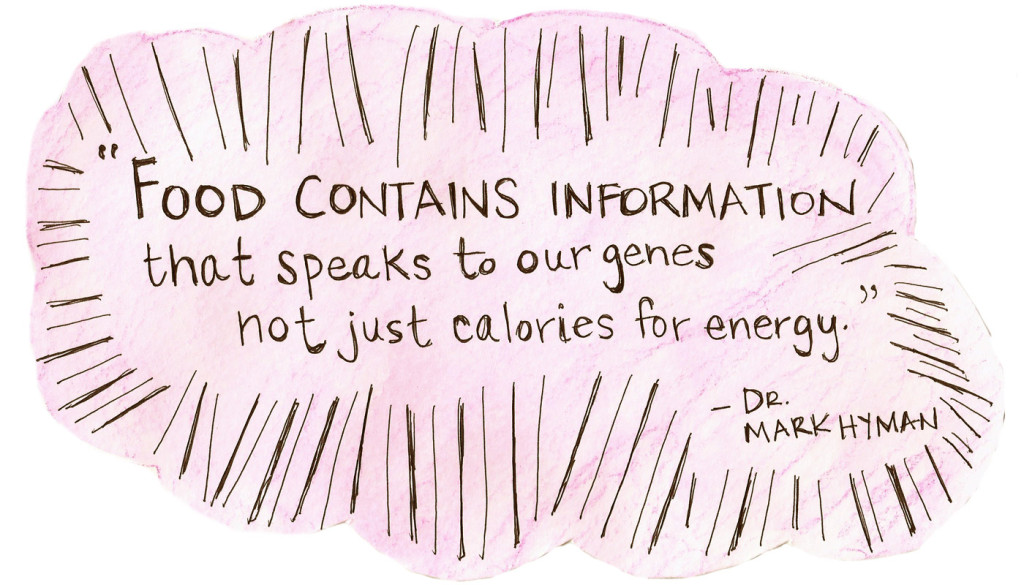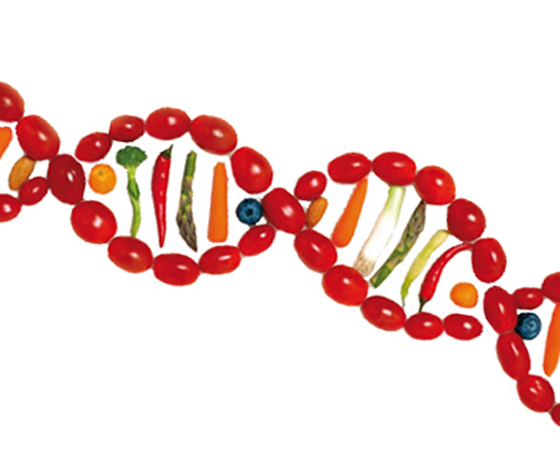New research on food and our genes shows healthy aging is mainly the result of how we communicate with our genes.
Contrary to popular belief, diseases like high blood pressure, heart disease, arthritis, Type 2 diabetes, stroke, cancer, etc., are not necessarily the inevitable consequences of aging. We have more control over how we age than you might think. Healthy aging is mainly the result of how we “communicate” with our genes — through our diet, our lifestyle and the environment we immerse them in.
We know that genes determine characteristics such as hair colour, eye colour, height, or those that predict specific childhood diseases, but many are not aware that the vast majority of genes direct all of our biochemical processes that render us susceptible to a variety of chronic diseases.
Healthy habits nurture healthy genes.
The food you eat affects the functioning of your genes.
Multiple factors in your diet, environment and lifestyle affect your genes and how you age, according to the new science of Nutrigenomics. Of all the factors, diet is the easiest to control and probably the most important determinant of how our genes are expressed.
“Eat the right foods and they will send instructions to your genes for good health. Eating the wrong foods however, sends messages for disease.”
Real food is packed with thousands of nutrients which have a complex and dynamic relationship with one another and your genes. With processed foods however, these micronutrients have either been altered or are missing, and therefore they can never deliver the same beneficial messages to your genes.
When you bathe your genes in an unhealthy environment, like the one created when you eat junk food, your genes “miscue” metabolic actions that can trigger disease.
Your body responds to processed foods as if they are “foreign bodies”, prompting an inflammatory response as your body tries to protect itself. Over time, continued consumption can lead to a low grade chronic inflammatory condition and a variety of more serious illnesses.
10 ways to improve the ‘conversation’ between food and our genes:
1. Eat real food: fresh, whole, unrefined and unprocessed food including vegetables, fruits, nuts, seeds, grass fed meats, wild fish, organic chicken and eggs etc.
2. Eat as close to nature as possible because the further removed food is from its source the less good data it will communicate to your genes.
3. Select fruits and vegetables in a wide variety of colors. For a list of fruits and vegetables with the most and least pesticides, check out www.ewg.org.
4. Buy fresh foods whenever you can, and locally grown if possible. Fresh foods are better than frozen foods, which are better than canned foods.
5. Stop eating when you are 80% full.
6. Be skeptical of foods that come individually labeled with a health claim. Most healthy foods don’t need a health claim.
7. Be wary of foods you’ve seen advertised as the vast majority of these are processed foods.
8. Be careful of obsessive calorie counting. Figuring your diet simply in terms of calories or even percentages of protein, fat and carbohydrate, can inadvertently deprive your body of the “complete” messages that real, whole foods provide.
9. Enjoy your food, preferably in the company of people you love.
10. Don’t waste your time feeling guilty if you ate the “wrong” thing.
Source:
“10 Ways Your Food Can Bring Out the Best in Your Genes” Dr. Frank Lipman, Retrieved 01 Feb. 2015. <http://www.huffingtonpost.com/dr-frank-lipman/10-ways-your-food-can-bri_b_206711.html>.






